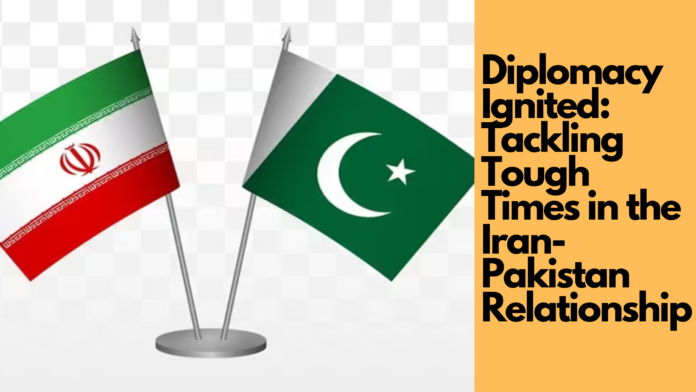Iran-Pakistan Relationship: Navigating Challenges with Dialogue and Cooperation
The connection between Iran and Pakistan is a tale of shared history, cultural ties, and, at times, tension. As we explore the intricacies of this relationship, recent events have heightened the complexities. Let’s take a closer look at the factors influencing the dynamics between these two neighboring nations.
Building Bridges: A Historical Perspective
Dating back to 1947, Iran and Pakistan have cultivated a relationship grounded in cultural affinity and geopolitical proximity. With a border stretching over 900 kilometers, the nations have engaged in diplomatic collaborations, economic partnerships, and joint military exercises over the years.
However, an enduring issue has lingered – the security situation along their shared border. Accusations of harboring militant groups and cross-border attacks have intermittently strained the relationship, casting shadows on the historical camaraderie.
A Fresh Chapter: Recent Missile Strikes and Escalating Tensions

The latest chapter in Iran-Pakistan relations unfolded with Iran’s missile strike on a militant group in western Pakistan. The operation, targeting sites in Balochistan associated with the militant group Jaish al-Adl, was Iran’s response to security threats from its eastern border. This move, however, sparked tensions, with Pakistan condemning it as an “unprovoked violation of its airspace” and deeming it an “illegal act.”
The incident’s human toll, including the tragic loss of two children and injuries to three others, intensified Pakistan’s response, underscoring the potential consequences of such actions on civilian lives.
Diplomacy in Action: The Delicate Balancing Act
Amidst the escalating tensions, diplomatic efforts have not come to a standstill. On the same day as the attack, Pakistan’s prime minister and Iran’s foreign minister convened in Davos, signaling a commitment to dialogue. Simultaneously, joint military drills between the two countries’ navies in the Gulf showcased a determination to maintain some level of cooperation.
While strong statements were exchanged, the delicate dance of diplomacy remains ongoing. Both nations acknowledge the importance of communication channels, recognizing that the challenges of addressing security concerns and border issues must coexist with the preservation of diplomatic ties.
International Perspectives: China’s Call for Restraint
In the broader international context, China has stepped in as a voice of reason, urging both Iran and Pakistan to exercise restraint. Viewing these nations as “close neighbors,” China emphasizes the necessity of maintaining stability in the region. This external perspective adds an additional layer to the intricacies of the Iran-Pakistan relationship.
Navigating the Future: Constructive Dialogues and Cooperation

As we delve into the complexities of the Iran-Pakistan relationship, the recent events serve as a reminder of the challenges inherent in balancing security threats and diplomatic ties. The question that looms is how these two nations can find common ground to move forward.
Constructive dialogues, transparent communication, and a shared commitment to regional stability are essential ingredients for a positive shift. As the international community observes closely, there’s hope that the complexities of the Iran-Pakistan relationship can be navigated with a focus on cooperation and understanding.
In this evolving narrative, the delicate balance between addressing security concerns and preserving diplomatic ties will shape the future trajectory of Iran-Pakistan relations. As we collectively navigate these complexities, the aspiration is for a stable, secure, and cooperative regional landscape.
